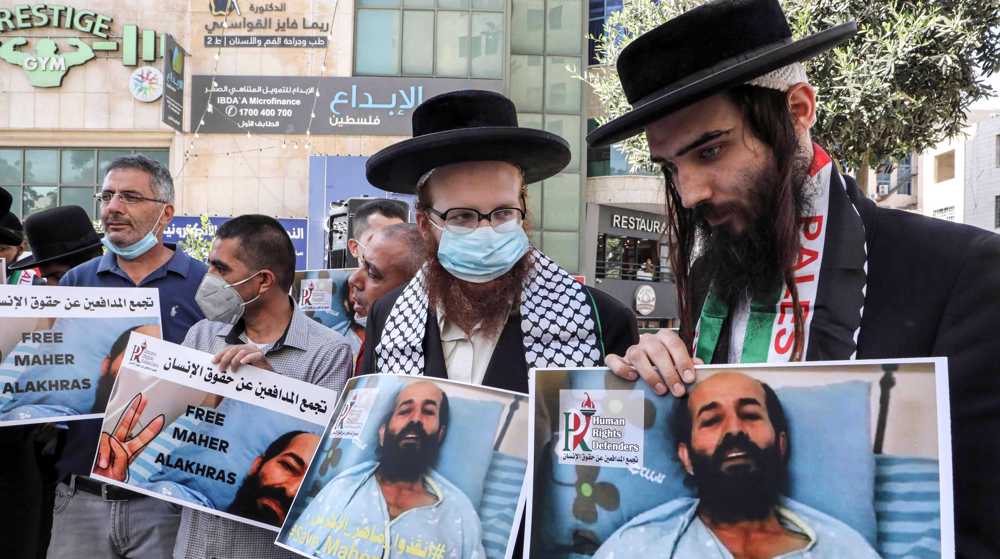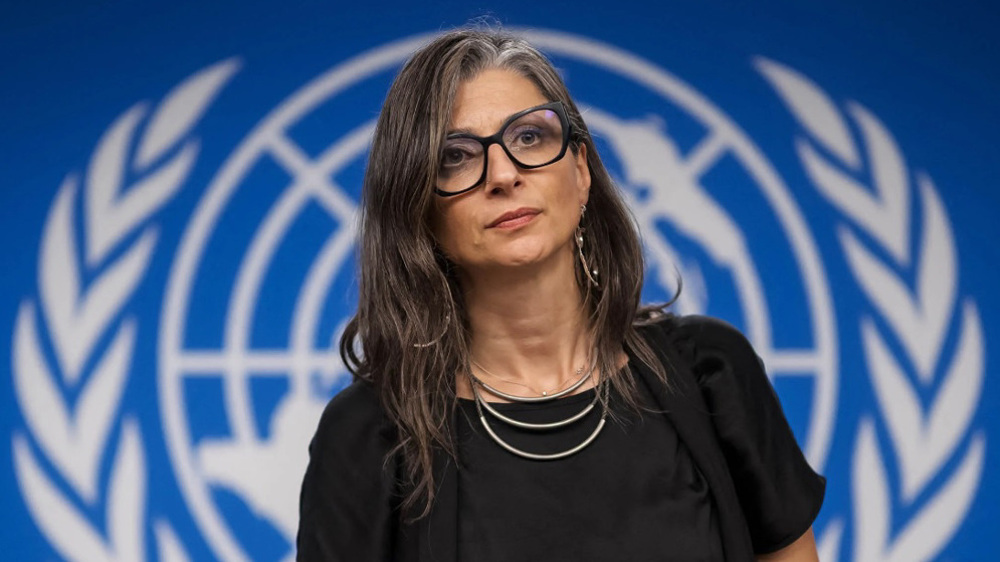Israeli court rejects transfer of Palestinian hunger striker to West Bank hospital
An Israeli court has turned down a request filed by lawyers of hunger-striking Palestinian prisoner Maher al-Akhras for his transfer to a hospital in the occupied West Bank.
On Thursday, Israel’s higher court of justice ruled that al-Akhras had no right to be transferred to a Palestinian hospital in the occupied West Bank, Palestinian Information Center reported.
Reacting to the ruling, the resistance group Islamic Jihad’s Muhjat al-Quds Foundation for Prisoners accused Israeli authorities of endangering the lives of the prisoners and described the verdict as a slow death sentence against al-Akhras, who is now in his fourth month of hunger strike in Israeli custody.
Several international organizations have demanded the Israeli regime release Akhras, who entered the 95th consecutive day of his open-ended hunger strike on Thursday in protest against his administrative detention.
The United Nations recently urged Israel to put an end to the practice of administrative detention and immediately release Akhras.
Michael Lynk, UN special rapporteur on human rights in the Palestinian territories, called on Tel Aviv to end administrative detention, in which Israel keeps detainees for up to six months, a period which can be extended an infinite number of times, sometimes for years.
Lynk also called on Tel Aviv “to abolish” the practice of administrative detention and free those detainees it has placed behind bars in its prisons.
The International Committee of the Red Cross (ICRC) has warned that the inmate was entering a medically “critical phase.”
Physicians have already warned of damage to several organs of the Palestinian prisoner’s body, such as the kidneys, liver, and heart, adding that the inmate’s senses of hearing and speaking have also been affected.
The 49-year-old Palestinian prisoner, the father of six children, was detained on July 27 and held under the administrative detention order, with no charge. This has led him start a hunger strike in an attempt to seek justice.
In 1989, Akhras was arrested for the first time and his detention continued for seven months. Back in 2004, he was arrested for a second time and spent two years behind bars. In 2009, he was rearrested and remained in administrative detention for 16 months. In 2018, Akhras was arrested again and held in custody for 11 months.
Palestinians have warned that his death is imminent.
Despite the fact that there is no criminal offense that the Tel Aviv regime is holding Akhras for, Israeli authorities refuse to release him.
Palestinian detainees have continuously resorted to open-ended hunger strikes in an attempt to express their outrage at the detention. Palestinians hold Israeli authorities fully responsible for any deterioration of the circumstances in jails.
Currently more than 7,000 of Palestinian prisoners are reportedly being held in 24 Israeli prisons and detention centers.
In July, Israel’s supreme court ruled that Palestinians held in Israeli jails had no right to social distancing protection against COVID-19.
Palestinian prisoners are subjected to degrading conditions, including administrative detention, solitary confinement, and bans on family visits.
Power running out at key Gaza hospital, ICU patients at risk: Report
VIDEO | Press TV's news headlines
‘Speaking truth is her crime’: Netizens rip into European allies of Israel for targeting Albanese
Russia reaffirms support for Iran’s sovereignty amid rising US threats
VIDEO | 3,000 bodies of Palestinians ‘evaporated’ as Israel used banned weapons in Gaza
Iran says political pressure cannot undermine its ‘inalienable’ enrichment right
Former Trump adviser Bannon plotted with Epstein to 'take down' Pope Francis
China warns US against ‘plotting’ on Taiwan, says it risks confrontation











 This makes it easy to access the Press TV website
This makes it easy to access the Press TV website